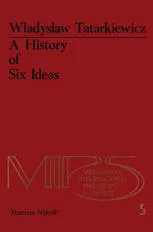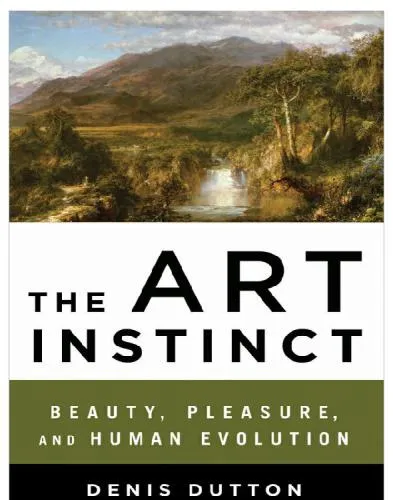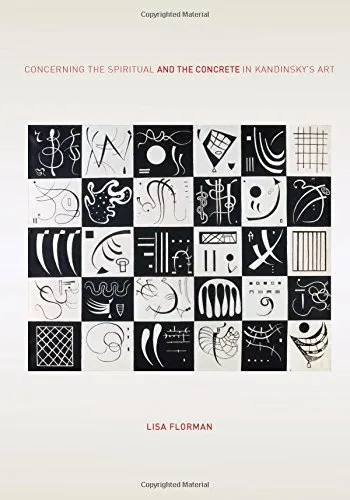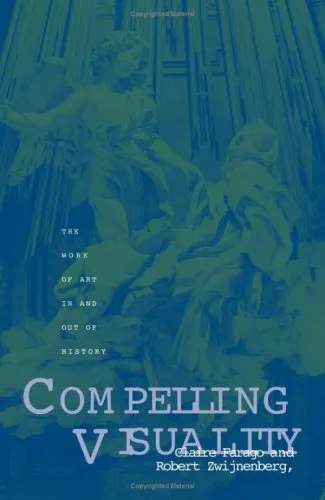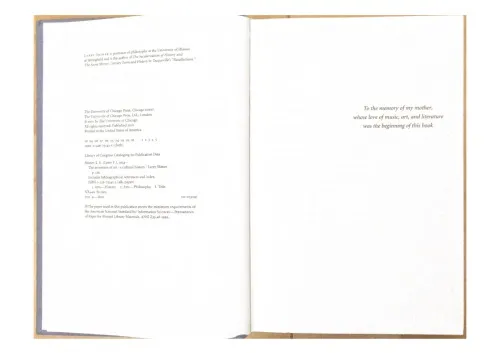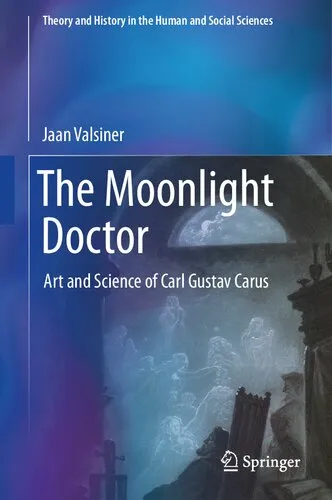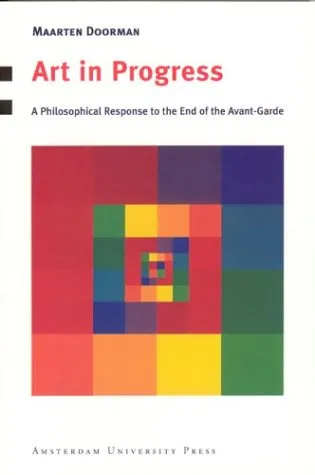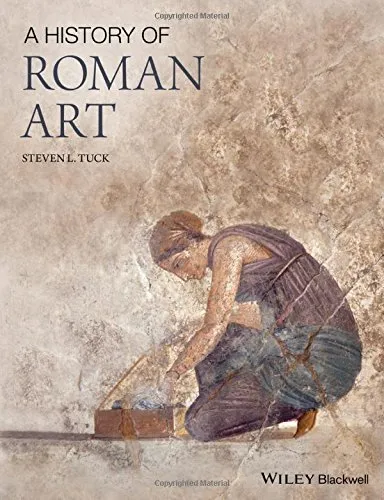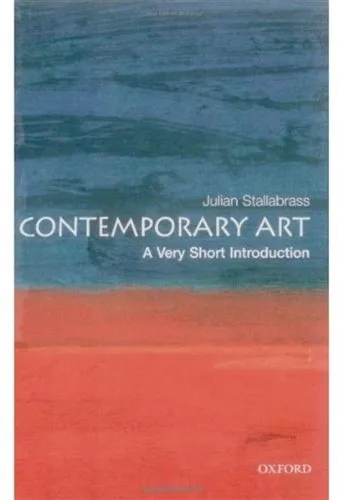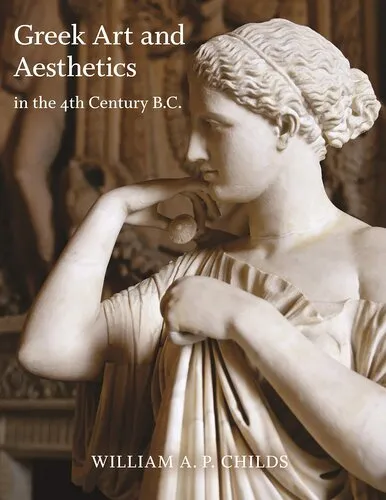A History of Six Ideas: An Essay in Aesthetics
4.0
بر اساس نظر کاربران

شما میتونید سوالاتتون در باره کتاب رو از هوش مصنوعیش بعد از ورود بپرسید
هر دانلود یا پرسش از هوش مصنوعی 2 امتیاز لازم دارد، برای بدست آوردن امتیاز رایگان، به صفحه ی راهنمای امتیازات سر بزنید و یک سری کار ارزشمند انجام بدینکتاب های مرتبط:
مقدمهای بر کتاب 'A History of Six Ideas: An Essay in Aesthetics'
کتاب 'A History of Six Ideas: An Essay in Aesthetics' اثری از ولادیسلاو تاتارکیهویچ است که بررسی جامعی از شش مفهوم اساسی در زیباییشناسی ارائه میدهد. این کتاب به آنالیز و تحلیل دقیق نظریات و مفاهیمی میپردازد که تأثیر شگرفی بر زیباییشناسی و نقد هنری داشتهاند.
خلاصهای جامع از کتاب
این کتاب شش مفهوم اساسی شامل زیبایی، هنر، فرم، خلاقیت، تجربه زیباییشناختی، و تفاوت بین هنر و طبیعت را مورد بررسی قرار میدهد. نویسنده با توجه به تاریخ تحولات فلسفی و هنری، هر یک از این مفاهیم را به طور مستقل تحلیل کرده و تغییرات آنها را در طول زمان ترسیم میکند. از دیدگاه تاریخی و فلسفی، این کتاب تلاش میکند تا روشن کند که چگونه این مفاهیم در برخورد با تحولات اجتماعی و فرهنگی، تکامل یافتهاند.
کلید واژهها
- زیبایی: این مفهوم به عنوان یکی از اصلیترین موضوعات در مباحث زیباییشناسی، همواره مورد توجه قرار گرفته است. نویسنده به بررسی دیدگاههای مختلف در طول تاریخ پرداخته است.
- هنر: نقش هنر در جامعه و نحوه درک ما از آن، محور دیگری از مباحث کتاب است.
- تجربه زیباییشناختی: این بخش به بررسی تاثیرات روانشناختی و احساسی تجربه هنر میپردازد.
نکات برجسته از کتاب
- تفکیک دقیق و روشمند مفاهیم بنیادی زیباییشناسی
- رویکرد تاریخی و فلسفی به تحولات فکری در زمینه زیباییشناسی
- تحلیل ارتباط بین جامعه و هنر
نقل قولهای معروف از کتاب
"زیبایی چیزی است که نه تنها لذتی لحظهای فراهم میآورد، بلکه به یک ارزش پایدار در زندگی تبدیل میشود."
"هنر نه تنها ابزار بیان فردی است، بلکه آیینهای از فرهنگ و زمانه است."
چرا این کتاب مهم است؟
این کتاب برای دانشجویان، پژوهشگران و علاقهمندان به فلسفه و هنر، منبعی بینظیر و کاربردی محسوب میشود. پرداختن به تاریخچه و تغییرات مفاهیم زیباییشناسی نه تنها به درک عمیقتر فلسفه کمک میکند، بلکه چشمانداز نوینی از رابطه انسان با هنر و زیبایی ارائه میدهد. اهمیت این اثر در این است که توانسته است به شیوهای ساختارمند و علمی، پلهایی برای ارتباط بین نظریات گذشته و برداشتهای معاصر بسازد.
A Detailed Summary of 'A History of Six Ideas: An Essay in Aesthetics'
'A History of Six Ideas: An Essay in Aesthetics' by Władysław Tatarkiewicz is a seminal work that explores the philosophical underpinnings of aesthetics through the concept of six central ideas. These ideas - Art, Beauty, Form, Creativity, Mimesis, and Taste - traverse the complexity of aesthetic thought from ancient times to the contemporary era. By dissecting these fundamental concepts, Tatarkiewicz provides an unparalleled examination of how they have influenced broader cultural and intellectual discourses.
The book begins by historically contextualizing each idea, illustrating how perceptions have evolved. It then delves into how these ideas intersect and influence each other in the realm of aesthetics. From the Platonic idea of Mimesis to Renaissance-inspired notions of Beauty, the work is a profound exploration of philosophical shifts that have shaped our understanding of art and aesthetics. Tatarkiewicz's meticulous approach serves as both a scholarly reference and a narrative that unravels the philosophical journeys of these six ideas.
Key Takeaways
Through Tatarkiewicz's exploration, readers are presented with the changing meanings and relevance of aesthetic concepts over time. Here are some key takeaways from the book:
- The Evolution of Art: Art ceases to be solely about craft, developing into expressions of human creativity, emotion, and perception.
- The Complexity of Beauty: Beauty is seen not just as a property of objects but as a reflection of cultural, philosophical, and subjective narratives.
- Form and Function: The dialogue between 'form' and 'function' invites readers to contemplate the purpose and aesthetic value in the world around us.
- Creativity's Role: Creativity is highlighted as an essential driving force in shaping artistic expression and human innovation.
- Mimesis Reinterpreted: The idea of Mimesis evolves from an imitation of reality to a means of creation and interpretation.
- The Subjectivity of Taste: Taste becomes a reflection of individuality, indicating a personal aesthetic palate, inherently tied to one's experiences and perceptions.
Famous Quotes from the Book
'A History of Six Ideas' is replete with thought-provoking statements and insights. Here are a few notable quotes:
"Art is not a mere reflection of reality, but a transformative power that renders the unseen visible."
"Beauty, once perceived as an attribute of objects, is now increasingly viewed as an interplay of senses and cultural constructs."
"Creativity does not come from nothing, but rather from the intersection of inspiration, experience, and innovation."
Why This Book Matters
Tatarkiewicz's 'A History of Six Ideas' holds immense significance for students, scholars, and enthusiasts of philosophy and aesthetics. It traverses the historical and theoretical landscapes of aesthetic philosophy, offering insight into the enduring questions about art and beauty that are central to human experience. This book matters not only because it clarifies complex ideas but also because it thoughtfully integrates them into a narrative that is both meticulous and enlightening.
In a world increasingly dominated by visual culture, understanding how these six ideas continue to shape our interactions with art and aesthetics is crucial. Tatarkiewicz’s exploration lays down a foundation for contemporary discourse on aesthetics, bridging historical perspectives with current and future reflections in the field of art and beyond.
دانلود رایگان مستقیم
شما میتونید سوالاتتون در باره کتاب رو از هوش مصنوعیش بعد از ورود بپرسید
دسترسی به کتابها از طریق پلتفرمهای قانونی و کتابخانههای عمومی نه تنها از حقوق نویسندگان و ناشران حمایت میکند، بلکه به پایداری فرهنگ کتابخوانی نیز کمک میرساند. پیش از دانلود، لحظهای به بررسی این گزینهها فکر کنید.
این کتاب رو در پلتفرم های دیگه ببینید
WorldCat به شما کمک میکنه تا کتاب ها رو در کتابخانه های سراسر دنیا پیدا کنید
امتیازها، نظرات تخصصی و صحبت ها درباره کتاب را در Goodreads ببینید
کتابهای کمیاب یا دست دوم را در AbeBooks پیدا کنید و بخرید
1593
بازدید4.0
امتیاز0
نظر98%
رضایتنظرات:
4.0
بر اساس 0 نظر کاربران
Questions & Answers
Ask questions about this book or help others by answering
No questions yet. Be the first to ask!
